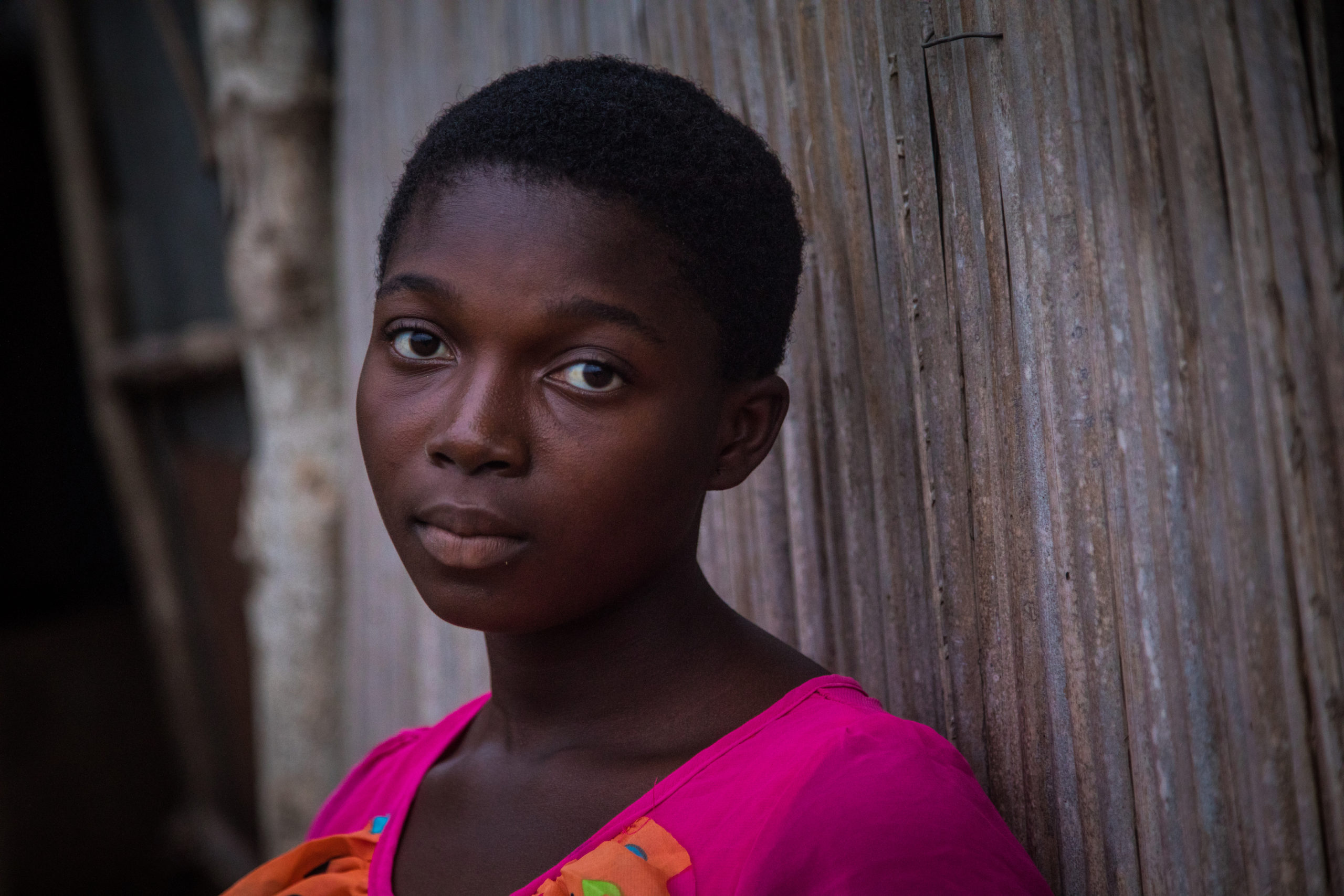a taboo subject!
Improper menstrual health and hygiene management can have serious social, physical and psychological consequences for girls and women in the short, medium and long term:
Social repercussions and impacts on activities of daily living:
Due to the lack of knowledge of the population, especially men about menstruation in general, there are prejudices and misinterpretations about the menstruation process.
Based on false beliefs and / or lack of knowledge, girls and women are exposed to restrictions during menstruation, including banning from attending religious ceremonies, entering religious spaces, manipulating food, sleep under their own roof. Menstruation is also associated with sexuality and taboo; girls are, in effect, marginalized by society when they are menstruating.
As a result, girls are generally ashamed of having their period. The company is pushing for the girl to go into hiding during her period and her activities are reduced.
For many fathers, their daughter’s menarche means that she is now able to get pregnant; teenage pregnancies and out of wedlock are becoming a real “threat” to their honor and that of their family. Young girls are then forced into marriage, thereby increasing child marriage and the risk of teenage pregnancies.

Social repercussions and impact on school life: menstruation plays an important role in the absenteeism of young girls at school.
For many girls, menstruation is a barrier to being able to continue school:
– Hygienic barrier: washing or changing hygiene products at school is problematic – the toilets are inadequate, sometimes non-existent or unsanitary, insufficiently secure and do not respect the privacy of young girls. The unavailability of hygiene products such as sanitary napkins also contributes to the isolation of young girls and to absenteeism.
– Psychological and physical barriers: risks of sexual and gender-based violence, mockery, humiliation
– Social and family barriers: pressure from the family to stop school after the start of menstruation and to get married after the start of menstruation.
KEY RESULTS
%
of girls rarely go to school during their period (Louga study, Senegal)
%
do not understand what happens to them when it comes to menstruation (Cameroonian study)
%
primary schools in the region have access to hand washing facilities with soap and water available (UNESCO UIS data)
%
of women and girls reported an infection during their periods (Niger study)
Inequality and injustice
Although natural, menstruation exposes girls and women to a high number of risks and jeopardizes many of their universally recognized fundamental rights:
Menstruation: a natural biological phenomenon that puts girls and women at high risk
The different types of risks, disruptions and pressures that young girls face during their periods:
- Risk of sexual and gender-based violence – menstruation is often interpreted as a state of maturity for marriage and sexual activity that makes girls entering puberty even more vulnerable to sexual and gender-based violence
- Discomfort in queues at water points
- Pressure / rejection from some teachers
- Pressure to get married after menstruation starts
- Risk of early pregnancy
- Pressure / rejection / mockery / humiliation from other girls at school
- Pressure / rejection / mockery / humiliation from boys at school
- Pressure from family to stop school after menstruation starts
- Lack of privacy in the school toilets
- Lack of privacy in the family circle and / or the community
- Risk of bad practices due to lack of resources for the use of suitable protections
- Isolation from the community, the family, the friendly circle.


Fundamental rights, universally recognized as endangered (UNFPA sources):
From the right to human dignity – When women and girls do not have access to safe sanitation facilities and to safe and effective ways to manage their menstrual hygiene, they cannot live their periods with dignity. The mockery, exclusion and shame associated with rules also jeopardize this right to dignity.
- Right to a correct standard of health and well-being – Women and girls can suffer negative consequences on their health due to the lack of products and sanitary facilities to manage their menstrual health. Period stigma can also prevent them from seeking treatment for period pain and disorders, which affects their health and well-being.
- Right to education – The lack of a safe place or the ability to manage menstrual hygiene as well as the lack of medication to treat menstrual pain can contribute to greater absenteeism and therefore poor academic performance . Several studies have confirmed that if girls cannot manage their period properly at school, their performance in school suffers.
- Right to work – Limited access to safe ways to manage menstrual hygiene and to medicines for pain and menstrual disorders also limits the professional opportunities of women and girls. They may give up certain jobs or be forced to sacrifice hours of work and wages. Period-related needs, such as bathroom breaks, are sometimes penalized, resulting in unequal working conditions. Women and girls can also suffer discrimination at work because of taboos around menstruation.
- From the right to non-discrimination and gender equality – Stigma and norms associated with rules can reinforce discriminatory practices. Barriers related to the rules that apply at school, at home, at work, in health services also perpetuate gender inequalities.
Improving menstrual health and hygiene and more generally sexual and reproductive health generates a return on investment
Improving sexual and reproductive health can yield a significant return on investment, including by strengthening the participation of women and girls in education and the economy.
A study published in the Lancet shows that improving the physical, mental and sexual health of adolescents, at a cost of around $ 4.60 (dollars) per person per year, would produce 10 times the profits for society .
By improving the health and well-being of women, sexual and reproductive health care benefits individuals and families, while contributing to the socioeconomic development of countries. This approach also enables the exercise of the sexual and reproductive rights of women and girls.
Good menstrual hygiene practices limit the development of infections of the urinary or reproductive tract. They also promote the well-being of girls by reducing stress, anxiety, embarrassment and social exclusion or isolation during periods.





